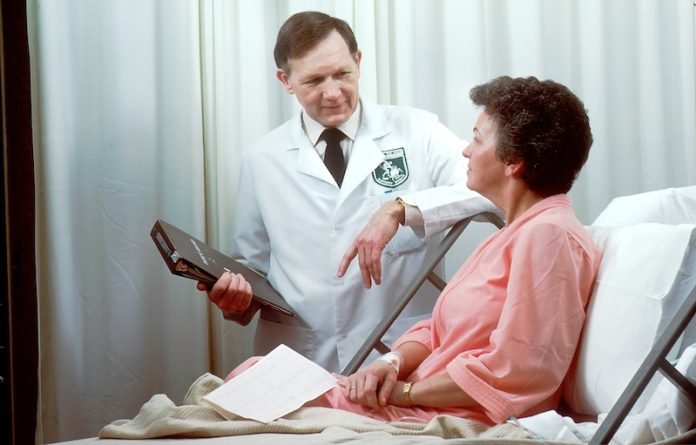
Whether it’s because of the cold weather, holiday and family stress, lack of routine or all of the above, heart attack and stroke rates spike during the last two weeks of December, said Northwestern Medicine cardiologist Dr. Donald Lloyd-Jones.
This is on top of the already grim reality that heart attack and stroke are the leading causes of death in the U.S. and across the globe.
“When we look across the year in terms of heart attack rates, what we see is fairly constant rates week by week with two exceptions:
One is that there’s a broad, shallow dip in summer monthsand, two, there is a very short spike of about 30 to 40% in the last couple weeks of the year between Christmas and New Year’s,” said Lloyd-Jones, chair of the department of preventive medicine at Northwestern University Feinberg School of Medicine.
“We also see variations, or small increases, around sporting events like the World Cup, the Olympics and other events,” Lloyd-Jones said.
“The acute stresses of rooting for your team, whether they’re doing well or poorly, might cause your blood pressure to spike.”
Factors contributing to a spike in heart attack, stroke around the holidays:
Lloyd-Jones: “During the holiday season, there are different stresses like dealing with your in-laws and travel arrangements that may add stress.
We’re often knocked off our eating and sleeping patterns, we tend to consume more alcohol, we’re not pursuing our typical physical activity and we may get thrown off our medication schedule.
“Cold weather also is a problem because when we breathe cold air, it chills the blood in our lungs and causes constriction of blood vessels.
The first blood vessels downstream from the lungs are the coronary arteries, which are particularly affected by the cold weather.
Pursuing cold-weather activities, like shoveling, may be especially hazardous because we might overdo it, plus we’re wearing extra layers, which could cause us to overheat. It’s a perfect storm to maximize stress on the heart.”
Symptoms, when to seek emergency care:
Lloyd-Jones: “In men, the classic symptoms of heart attack include heavy, crushing chest pressure in the middle of chest and/or sudden, unexplained shortness of breath.
“Women can experience the same symptoms as men or a little more diffuse ones, such as experiencing just shortness of breath or profound fatigue, or occasionally, dizziness and lightheadedness.”
In cases of stroke, Lloyd-Jones said to follow the mnemonic device, FAST:
- Face drooping
- Arm or leg weakness on one side
- Speech difficulty
- Time to call 911
For anyone who experiences any of these symptoms in a severe or sudden manner, Lloyd-Jones said head to the emergency room right away.
“We have two kidneys and two lungs, but only one heart and one brain, so it’s much safer to err on the side of caution,” Lloyd-Jones said.
“If there’s any doubt, get checked out in person. At best, hopefully you are aborting a heart attack or stroke. Time is heart muscle, time is brain cells, and so time is of the essence.
The sooner you seek help in that situation, the sooner we can save your life or brain.”
Written by Kristin Samuelson.
If you care about heart health, please read studies about drug combo that could prevent stroke and heart disease, and Stanford study finds a new cause of heart attack.
For more information about heart health, please see recent studies about 7 common triggers of heartbeat problem that may surprise you, and results showing drinking up to three cups of coffee a day may protect your heart.



